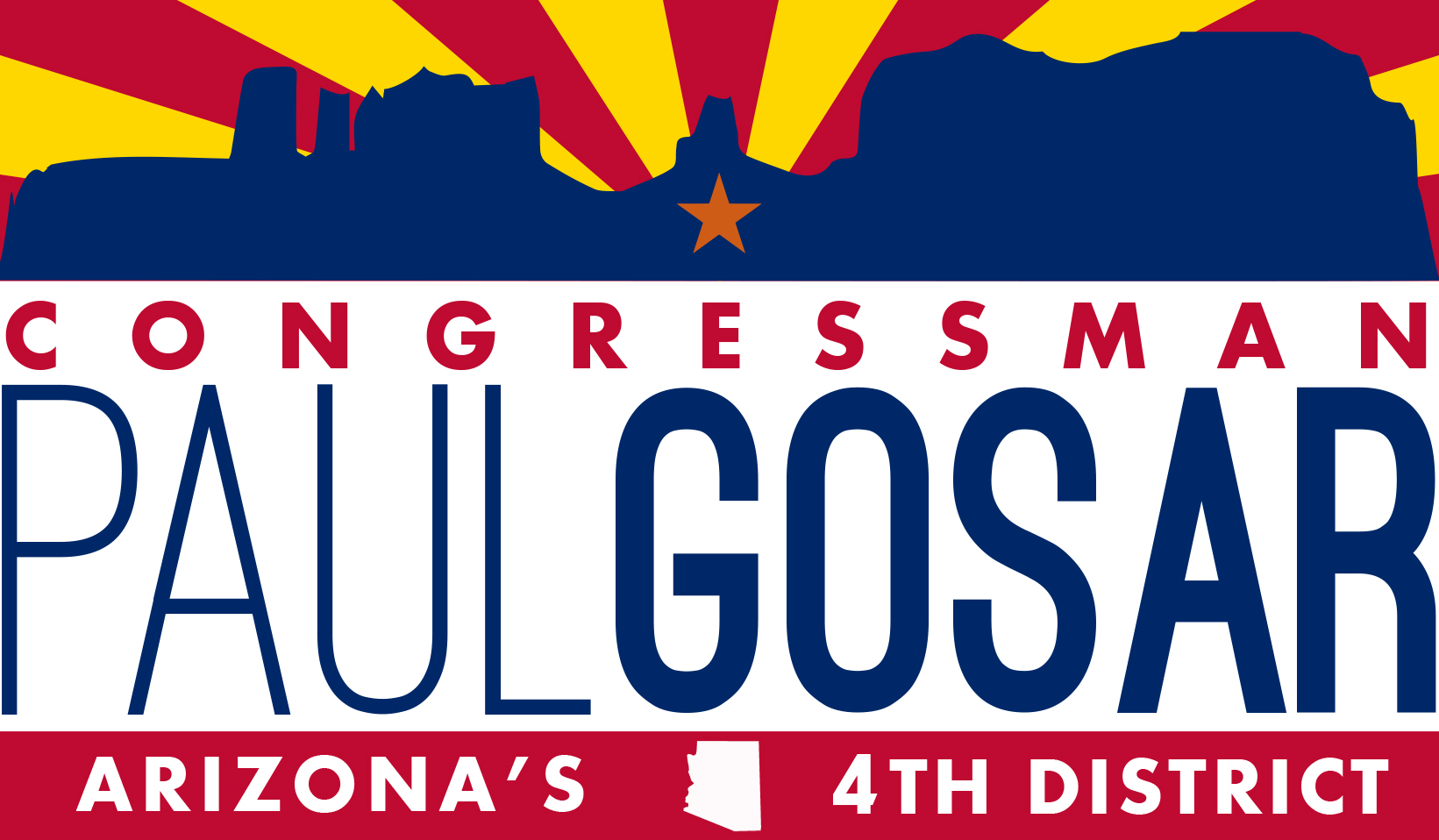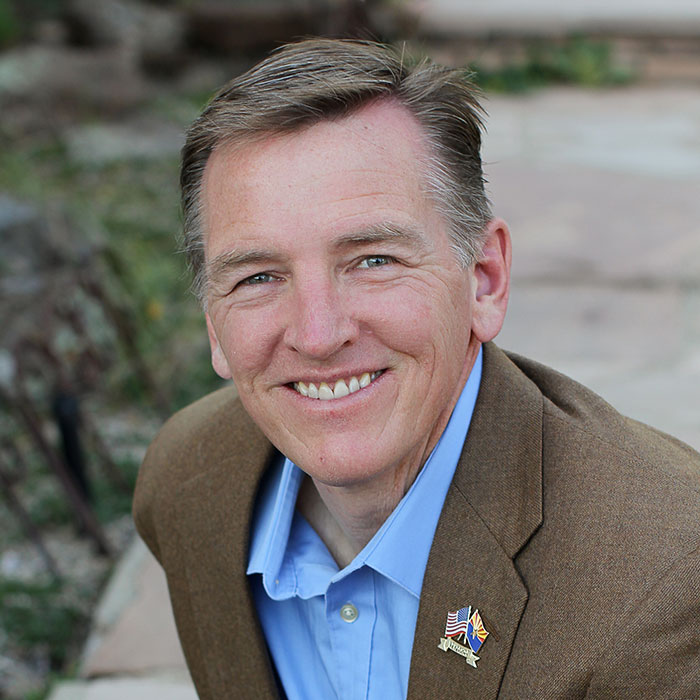|
Today, U.S. Congressman Paul A. Gosar, D.D.S. (AZ-04) released the following statement after joining the Chairman of the House Transportation and Infrastructure Committee, Bill Shuster (PA-09) in introducing the Regulatory Integrity Protection Act:
“I applaud Chairman Shuster’s leadership and I'm proud to join him in introducing legislation that will protect precious water resources for millions of Americans from an overreaching federal government.
The blatant attempt by the Obama Administration to unilaterally expand their jurisdiction over more water through the WOTUS proposed rule violates not only previous Supreme Court rulings, but also undermines the federal-state partnership that has been incredibly successful to date.
“This continued push to expand bureaucratic control over our water would be especially harmful for Arizona jobs and rural economies. This legislation builds on the momentum we were able to establish with my Regulatory Overreach Protection Act and formally requires the withdrawal of the proposed rule that was recently sent to OMB for review.
“It is unthinkable that the Environmental Protection Agency (EPA) did not consult with the people most impacted by this overreaching rule before offering such a sweeping proposal. Leaving states, local officials and local stakeholders out of the discussion is the primary reason WOTUS is so flawed. Americans can’t afford to let our precious water resources fall victim to the Obama Administration’s ever expanding and harmful big government takeover. I am pleased to see the Committee of jurisdiction taking action to address this overreach and I’m honored that the Chairman reached out and asked me to join this effort.”
Upon introducing the bill, Chairman Shuster added, “The Regulatory Integrity Protection Act will ensure the state and federal partnership remains strong and allows for a transparent rulemaking process in the future.”
Background
The Regulatory Integrity Protection Act will uphold the integrity of the federal-state partnership to regulate the Nation’s waters by preserving existing rights and responsibilities with respect to “waters of the United States” under the Clean Water Act (CWA). This legislation gives the EPA and the Army Corps of Engineers (Corps) 30 days to withdraw the current proposed rule that seeks to expand the “waters of the United States” definition under the Clean Water Act.
On January 28, 2015, Rep. Gosar introduced H.R. 594, the Waters of the United States Regulatory Overreach Protection Act. This legislation has the support of 183 bipartisan cosponsors. Click HERE to read more about the Waters of the United States Regulatory Overreach Protection Act.
Several similar provisions from H.R. 594, including a critical Federalism provision, were ultimately included in the Shuster-Gosar Regulatory Integrity Protection Act. The Federalism provision mandates that state, local officials and local stakeholders are intimately involved in the process moving forward.
More than 200 organizations have publicly declared their opposition to the proposed WOTUS rule.
The House Transportation and Infrastructure Committee is scheduled to consider the Regulatory Integrity Protection Act at a 10:00 AM markup this Wednesday, April 15th.
On March 25, 2014, the EPA and the Corps released a proposed rule that would assert Clean Water Act jurisdiction over nearly all areas with even the slightest of connections to water resources, including man-made conveyances.
On May 1, 2014, Rep. Gosar and 230 of his colleagues sent a letter to Gina McCarthy, Administrator of the EPA, and John M. McHugh, Secretary of the Army, urging them to withdraw the proposed rule. The full text of that letter can be found HERE.
On June 2, 2014, Congressman Gosar hosted a joint field hearing on EPA’s proposed rule in Phoenix, Arizona that was attended by four of his Congressional colleagues and 9 Arizona witnesses. Stefanie Smallhouse, testifying on behalf of the of the Arizona Farm Bureau said, “The newly proposed EPA rule for the Waters of the U.S. would be devastating to my family’s farming operation, as well as hundreds of others in agriculture in Arizona…This proposed rule is an economic disaster, and a dream killer for my kids. There is no way a family farm such as ours would be able to withstand the hefty fines which would be enforced as a result of this rule.”
Bob Lynch, testifying on behalf of the Irrigation and Electrical Districts’ Association of Arizona said, “The EPA and the Corps have driven a truck through Justice Kennedy’s opinion in Rapanos. According to them, everything is relevant, everything affects everything, and everything is jurisdictional… How many permits will the Central Arizona Project need? Will it have to treat the water before it stores it in Lake Pleasant? Before it releases it back into its system to deliver to cities, towns, industries and agriculture? And who will be able to afford it? Certainly not agriculture…This may be the biggest jurisdictional overreach that I have witnessed in 50 years of law practice. I hate to say it but the only people who come out ahead on this proposed rule will be lawyers.” More information about that joint field hearing can be found HERE.
Public comments on the proposed rule were accepted until November 2014. The agencies have stated they expect to issue a final rule this spring.
###

|

